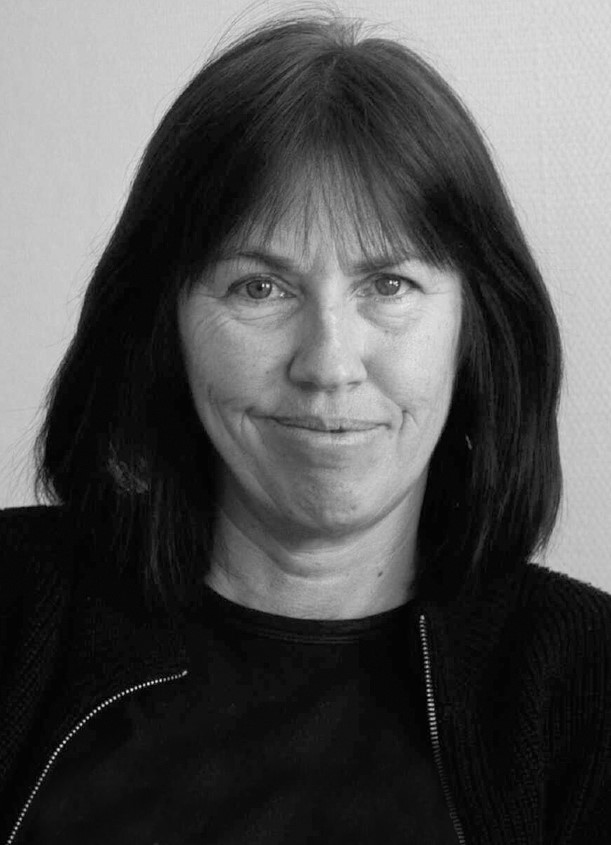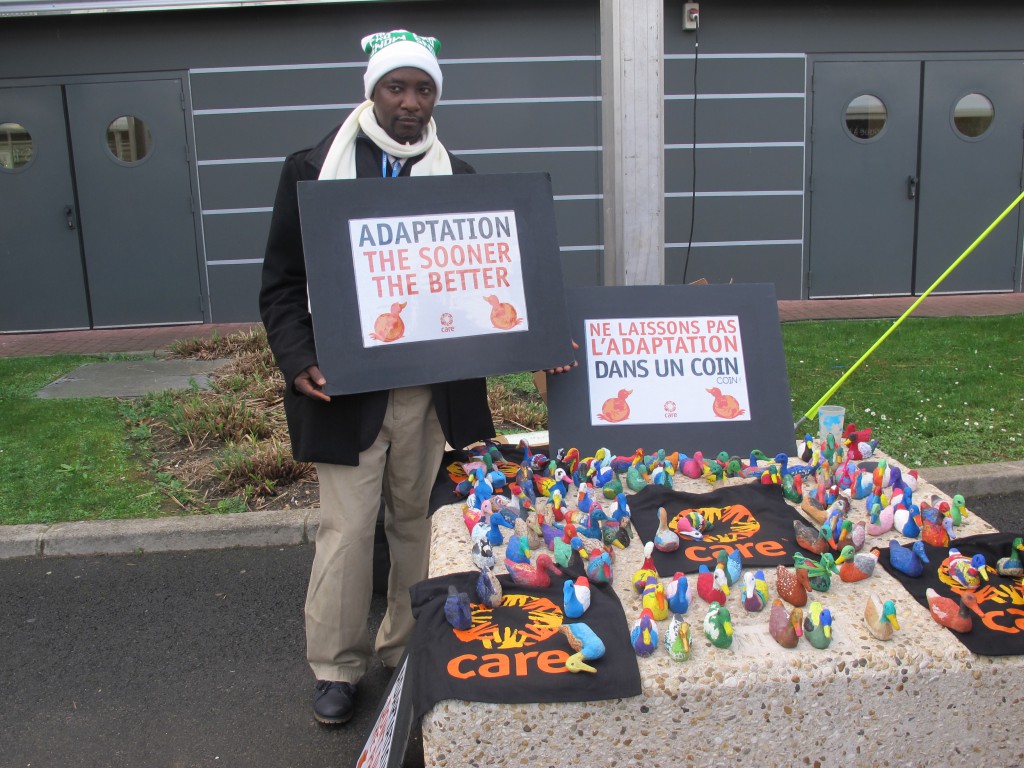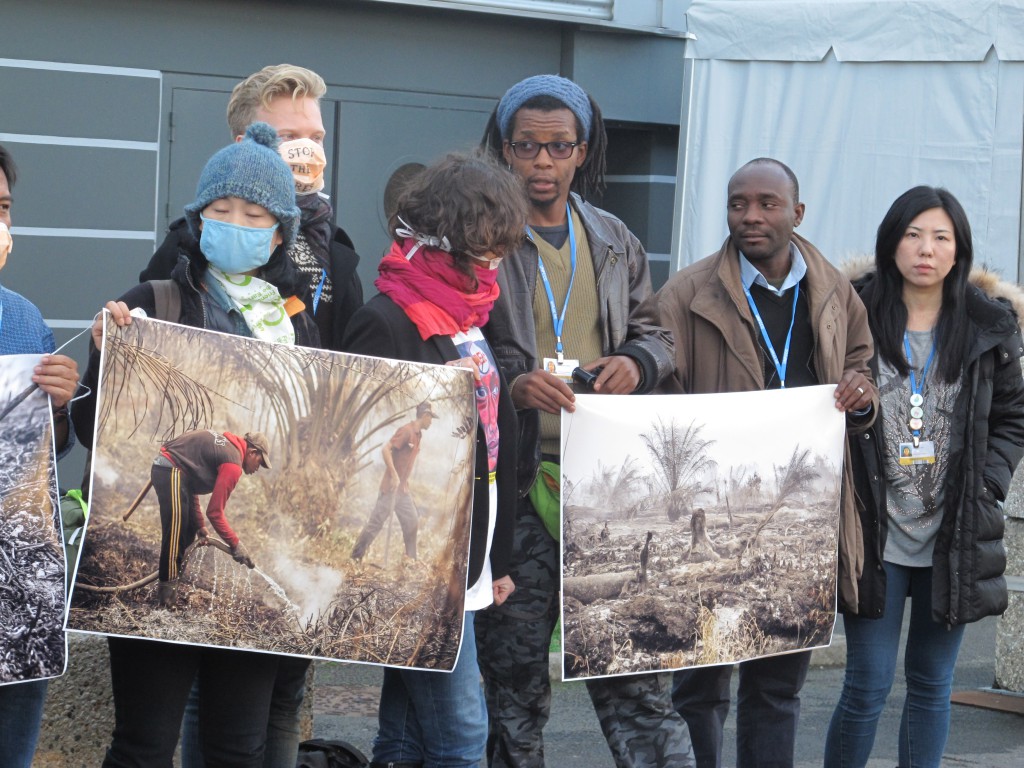
Monday morning the climate summit started with scores of state leaders arriving in their black cars, delegates and press mostly in hybrid shuttle buses.
But Espace Générations Climat – the forum for all the non-accredited NGOs and activists, remained closed. They were not allowed to open until Tuesday, evidently for security reasons. The amount one has to pay to be there is rather steep. A woman representing a small NGO said they had to pay 1700 Euro for just 9m2.
The only demonstrators the delegates would see as they entered the accredited grounds of COP21 on Monday morning were seven angels with posters promoting climate justice and scorning fossil energy. The angels are Australian, and have travelled widely with their message already. “Who would arrest angels?,” – an Australian professor from Melbourne commented. After noticing how they navigated through police blocks at Place de la République on Sunday, when the going got tough, we were convinced. As they days have passed, small groups of demonstrators have made their mark inside the official Cop (the blue zone.) also, applauded by passers-by.

Justice and island states
Climate justice? Yes, but where to draw the line? Before this conference, it was taken for granted that the conference was going to be about the two degree target, the aim that everyone spoke about, where the world, in a best case scenario, was heading. So far the pledges would keep global warming just below three degrees. Then again, pledges and practices are not identical entities. As the conference develops it has become increasingly clear that the Least Developed Countries (LDC’s) and G77 will not agree to a final document unless the rich nations increase their commitment to financing adaptation substantially.

A growing coalition of indigenous people, island state representatives and large parts of civil society are now insisting on one and a half degree increase, maximum. This call seems to have been heard by politicians at the opening ceremony. Both Francois Hollande and Angela Merkel emphasized the island state vulnerability. Utopian as it may seem, the lower one and a half degree target was mentioned by some western leaders. Hollande even said he wanted to lend his voice to the island states. President Obama met the island leaders Tuesday. However, as a seasoned COP-participant uttered: “The politicians sound generous, the negotiators will be less so.”
Case-ification of the poor …
Another rhetorical feature is the way in which some leaders promote special ‘cases’ of the vulnerable. French minister of Foreign Affairs Laurent Fabius, who chairs COP21, spoke of an elderly woman he had met in Bangladesh. Due to climate change, she had shifted home nine times and had asked him if the COP would do anything to change her circumstance. We do not think he had an answer ready at hand. President Obama emphasized his own experiences from drastic changes in Alaska, and also mentioned a young Indonesian lady in Malaysia who had challenged him to take action. The president of Honduras mentioned Maria, who, like 70 percent of his population, cooked over open fire, but was helped to cook more environment-friendly. But do these narratives bring the global leaders closer to the realities on the ground?
The state leaders, due to time constraints, held their introductory speeches in parallel sessions. President Obama and the Norwegian Prime minister Erna Solberg spoke simultaneously. So did Vladimir Putin and Brazilian Dilma Roussef. While these speeches entered our ears, press releases kept pouring into email boxes, while some printed versions still land on your desk. In the press room, reporters risked fragmented experiences, a permanent peril to anyone trying to report from this global event. Every journalist has to make hard choices.
Growth?
Can we really believe that global leaders have grasped the situation now? Competing diagnoses still exist in this forum. The president of Paraguay, Horacio Cartes has warned against unlimited growth and repeated the claim for an international court mechanism dealing with crimes against the environment. Evo Morales from Bolivia reiterated that capitalism has steered Mother Earth towards the abyss. On the other hand, many western leaders, not least Obama (Monday) and Michael Bloomberg (Friday), are increasingly enthusiastic about ‘green growth’ and the ability businesses have to save the system as well as the planet.
A row of initiatives were launched to convince the conference that we are heading in the right direction, pledging funding for positive development as well as a quota system and new market mechanisms. But few of these initiators bothered to visit the Climate Vulnerability Forum, assembled Monday. More than thirty leaders from the most vulnerable nations were there to defend the one and a half degree target. The strongest appeal came from young José Sixto Gonzales from the Philippines who told that his archipelago experiences around 22 typhoons a year. While he admitted he would rather be at home, he said he represented his new-born daughter – and all other children. He said the one and a half degree target is at the core of these negotiations. Further, he said that his countrymen, who had survived typhoon Haiyan, are in a sense experts on climate change and deserve being listened to.
José is active on social media and had gathered mountains of responses. “Please listen to all these voices. Tell us that it is about now!” The forum applauded. The UN climate leader Christina Figueres offered her advice to the forum and asked them to let their voices be even louder, and to exploit the positive rhetoric of western leaders to the full.
With one week nearly done, next week we’ll see if rhetoric translates into action.